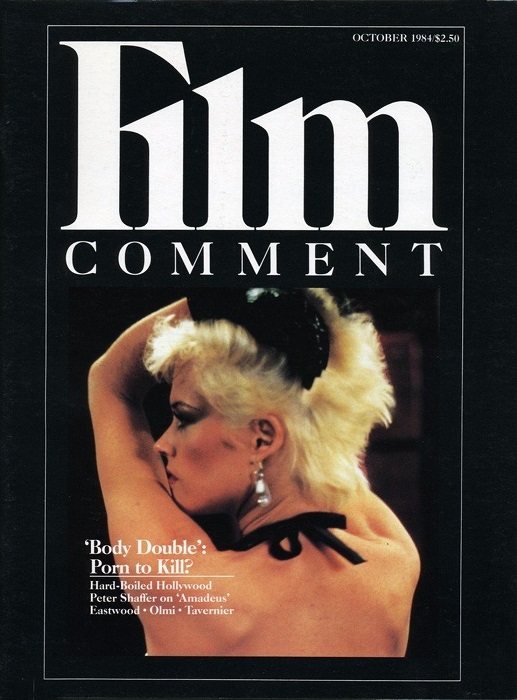BBC'S RACHEL PRONGER LOOKS AT INTERRELATED HISTORIES OF PORNOGRAPHY & FILM INDUSTRIES

In an article for the BBC timed for the 25th anniversary of Paul Thomas Anderson's Boogie Nights, Rachel Pronger delves into the interrelated history of the pornography and film industries:
As Karina Longworth highlights in her podcast series Erotic Eighties, the mainstreaming of porn in the 1970s also fed directly into Hollywood. A wave of erotic thrillers released across the 1980s and 1990s – films such as American Gigolo (1980), The Postman Always Rings Twice (1981) and 9½ Weeks (1986) – drew directly on the aesthetics of pornography, offering up naked movie stars as sex symbols. Aside from these erotic thrillers, another way in which porn has clearly influenced Hollywood lies in the small but significant subgenre of films set in the industry. Like Boogie Nights, the best of these films have as much to say about the power dynamics and ethical challenges of working in Hollywood as they do about pornography.Unlike other films of the 1980s erotic thriller boom, Brian De Palma's Body Double (1984) is explicit about the crossover between Hollywood and porn. This campy and heightened B-movie homage centres on Jake (Craig Wasson) a struggling actor who becomes obsessed with performer/body double Holly Body (Melanie Griffith) and is sucked into LA's seedy underworld. Intentionally lurid and violent, Body Double split critics on it release. While some responded positively – Roger Ebert called it "an exhilarating exercise in pure filmmaking" – others criticised the film as sensationalist schlock and "creepy crud". Body Double was particularly strongly critiqued by feminist commentators who drew a link between De Palma's depiction of violence and real-life violence against women, an accusation that has followed the director across his career, much to his annoyance. "I got slaughtered by the press right at the height of the women's liberation movement," remembered De Palma in a 2016 interview. "I thought it was completely unjustified. It was a suspense thriller, and I was always interested in finding new ways to kill people."
Body Double has enjoyed something of a renaissance lately, with a new generation of critics restyling the film as a misunderstood gem. As time has passed De Palma himself has evolved from enfant terrible to filmmaker's filmmaker, becoming the subject of an admiring documentary helmed by Noah Baumbach and Jake Paltrow, and increasingly celebrated for his influence. Certainly, one can sense Body Double's bloody fingerprints all over Ti West's X (2022), a kitsch slasher flick about a porn crew who are stalked by a frenzied killer, which draws heavily on 70s exploitation films but has more than a dash of De Palma's camp sensibility, dark humour and stylised violence.
Although not to everyone's taste, Body Double's self-conscious excess serves a purpose, indulging in Hollywood excess while simultaneously critiquing it. Like Anderson, De Palma constantly references other filmmakers, particularly Alfred Hitchcock – the film's plot riffs directly on Vertigo and Rear Window – and these references have gained new potency over the years. Watching Body Double today brings to mind Hitchcock's abusive treatment of actor Tippi Hedren (Griffith's mother) and this connection adds another layer to the film's commentary on Hollywood's abusive dynamics. With its nudity and violence Body Double has its cake and eats it, but it nevertheless asks provocative questions. If Hollywood can serve up the same salacious thrills – and exploitative dynamics – as porn, where does the division between the two industries lie?
Alongside other explicit Hollywood films of the era, Body Double was caught up in a furious debate around depictions of sex on screen which became known as the "porn wars". One of the key arguments of the porn wars was that pornography inevitably exploits female performers. In 1986, Linda Lovelace herself became an ally of anti-porn campaigners when she testified before Congress that she had been violently coerced into appearing in Deep Throat, stating shockingly that "virtually every time someone watches that movie, they're watching me being raped". Lovelace's testimony called into question the idea of sexually liberated femininity that underpinned "porno chic" and exposed the potentially troublesome dynamics of the industry.
Updated: Sunday, October 9, 2022 10:15 PM CDT
Post Comment | Permalink | Share This Post



